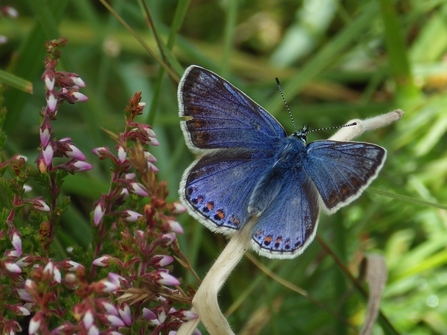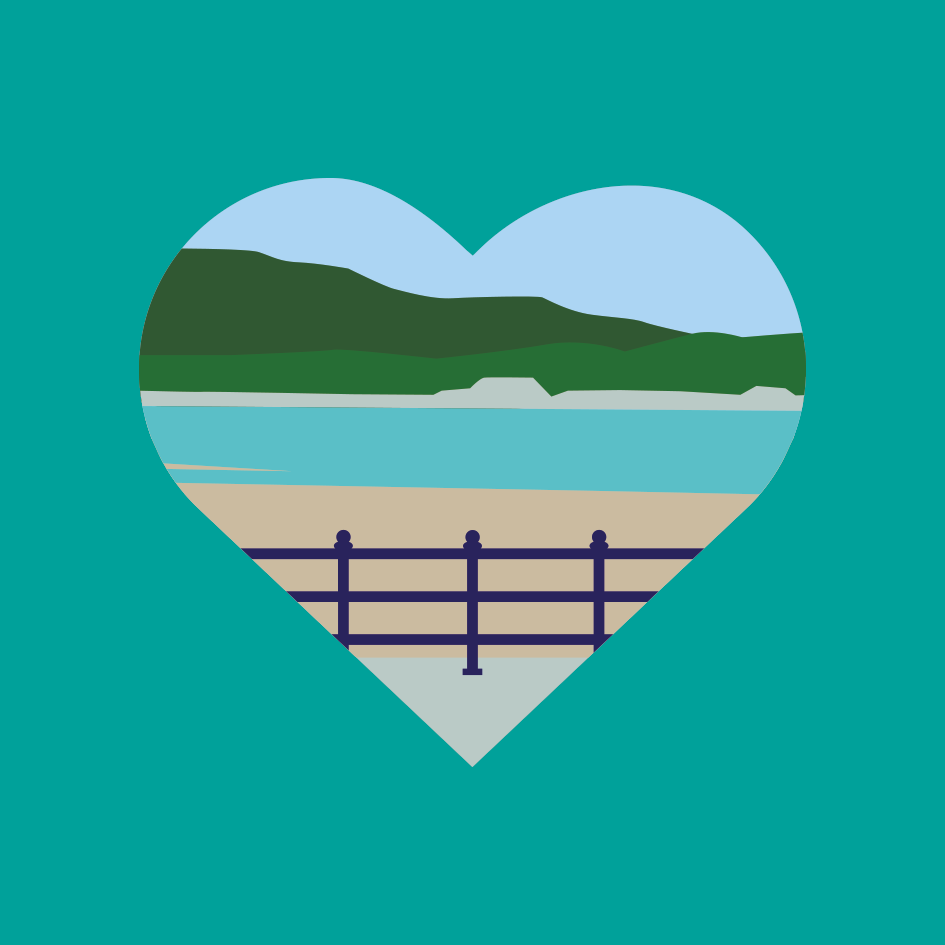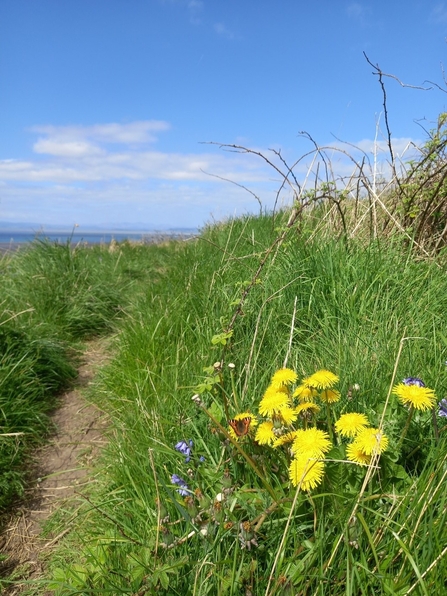
Common Blue Butterfly - Photo by Alex Blomfield
As well as the more familiar garden butterflies, Morecambe Bay is home to a number of our rarer species. In fact, the Morecambe Bay Limestones are of national importance for butterflies, being the singularly most important area for butterflies in northern England and supporting several rare, priority species.





